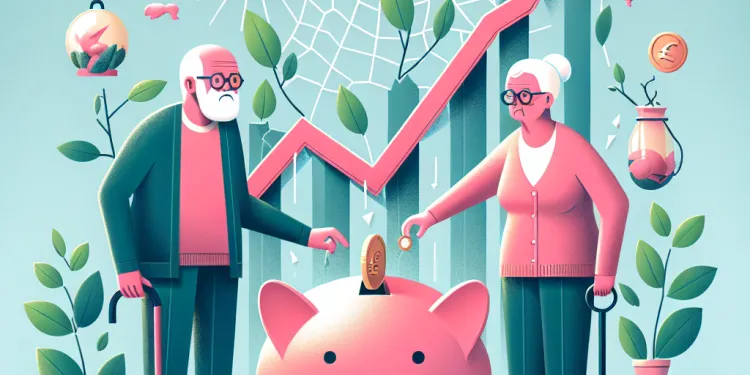
Find A Professional
More Items From Ergsy search
-

What can pension fund members do if their fund is at risk of failing?
Relevance: 100%
-
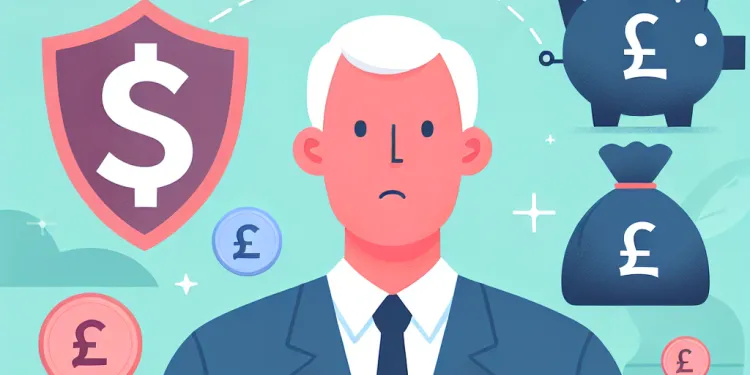
What is the Pension Protection Fund?
Relevance: 88%
-
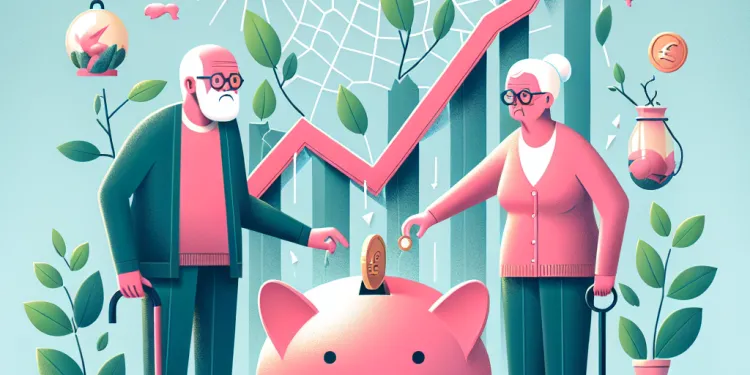
Why do pension funds go bust?
Relevance: 84%
-
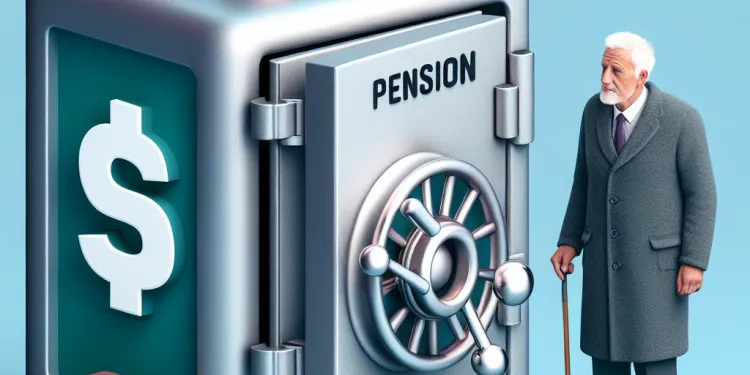
Can pensioners lose all their money if a pension provider fails?
Relevance: 83%
-

State Pension UK | How much will I get? | WILL IT LAST FOREVER?!?
Relevance: 79%
-
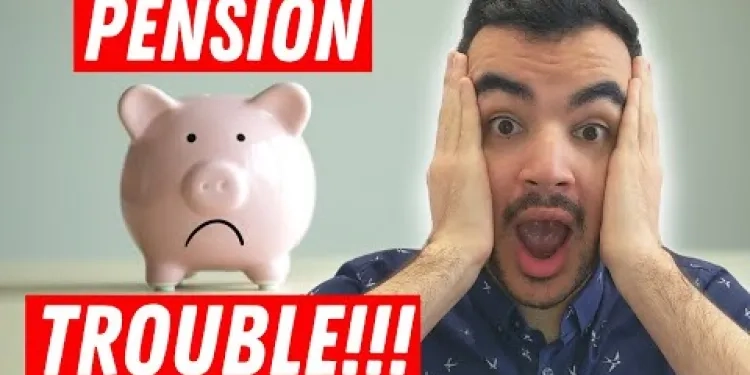
What Happens When Pensions Go Bust! | Pension System Collapse UK
Relevance: 76%
-

What role does government regulation play in protecting pensions?
Relevance: 74%
-

How does insolvency impact pension funds?
Relevance: 73%
-

What is the impact on pensioners if a pension system collapses?
Relevance: 70%
-

Can pension scheme members influence how their pension is managed?
Relevance: 69%
-

Are defined contribution pensions protected if the provider goes bust?
Relevance: 67%
-

How will refunds affect investments towards improving water infrastructure?
Relevance: 58%
-

Who is eligible for compensation from the PPF?
Relevance: 56%
-

Answering NHS Pension Questions | Opting-Out | How to Claim | Moving Abroad etc.
Relevance: 53%
-

Unfreezing the Truth The UK's Frozen Pensions
Relevance: 53%
-

5 Ways You Can Contribute More To Your NHS Pension!
Relevance: 51%
-

How are customers being informed about their eligibility for refunds?
Relevance: 50%
-

Can I use crowdfunding to raise money for funeral expenses?
Relevance: 48%
-

Workplace Pension UK | Pros and Cons | GET FREE MONEY FROM YOUR EMPLOYER!
Relevance: 48%
-
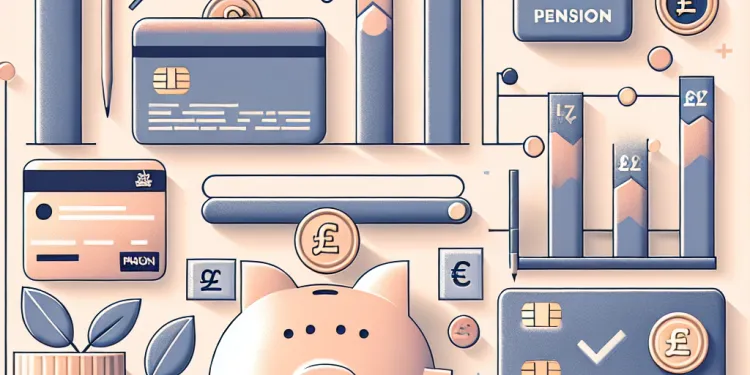
What is a defined contribution pension scheme?
Relevance: 48%
-
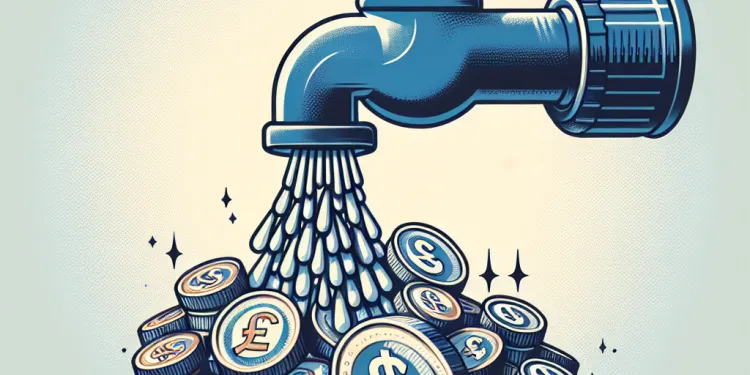
How much is being refunded in total by the UK water companies?
Relevance: 48%
-

How do I find out if I am eligible for a refund?
Relevance: 47%
-

When will the refunds be issued by the UK water companies?
Relevance: 47%
-

What specific performance issues led to these refunds?
Relevance: 45%
-

Police Pension Explained
Relevance: 45%
-

NHS Pensions | All you need to know
Relevance: 45%
-

NHS Pensions | How to Claim? | Ill Health, Active & Deferred Members
Relevance: 43%
-

Can customers appeal or discuss the refund amount with their water company?
Relevance: 42%
-

Will I qualify for the new state pension?
Relevance: 42%
-

What should customers do if they have further questions about refunds?
Relevance: 42%
-

Are the refunds part of a regulatory action?
Relevance: 42%
-

How many UK water companies are involved in the refund process?
Relevance: 41%
-
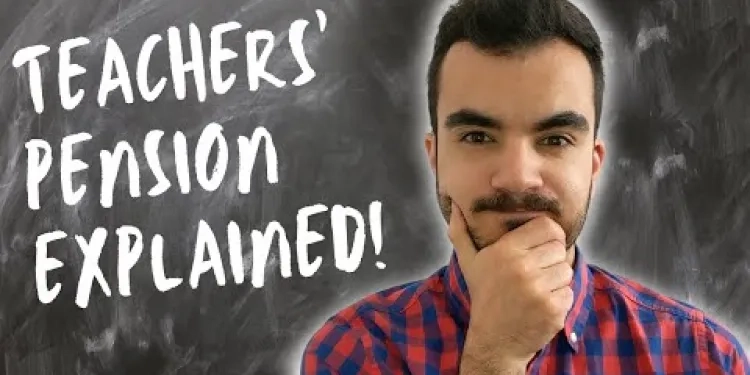
Teachers Pension Explained | All you need to know | Final Salary & Career Average Earnings
Relevance: 40%
-

What criteria were used to determine the refunds for UK water companies?
Relevance: 40%
-

What is a defined benefit pension scheme?
Relevance: 39%
-

Which UK water companies are going to refund their customers?
Relevance: 38%
-

Higher Income Tax - How to Claim Pension Tax Relief | Extra 20% Boost
Relevance: 36%
-
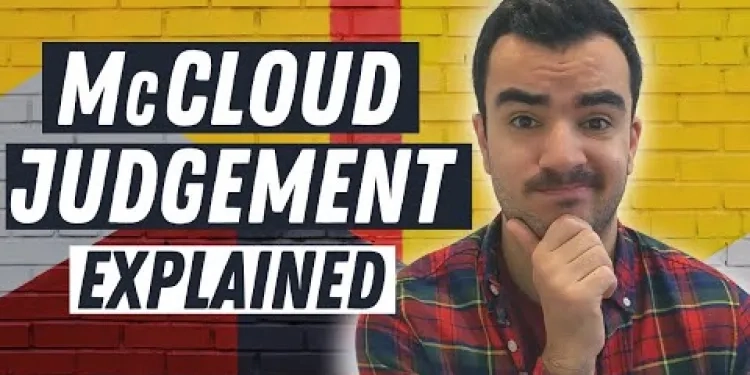
Public Sector Pension Changes | McCloud Judgement | NHS Pensions etc.
Relevance: 35%
-
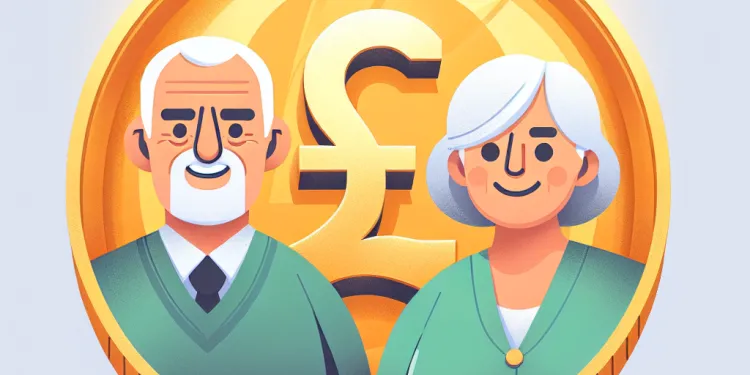
Are pensioners eligible for the £500 cost of living payment?
Relevance: 35%
-

Which UK water companies are going to refund their customers for poor performance?
Relevance: 35%
Introduction to Pension Funds
Pension funds are critical economic entities in the UK, providing a retirement income for millions of people. These funds pool contributions from employees, employers, or both, and invest the collective capital in various financial assets to yield returns over time. However, pension funds can face financial difficulties, and under extreme conditions, they can go bust, impacting the livelihoods of many retirees.
Common Reasons Pension Funds Go Bust
One major reason for the failure of pension funds is poor investment performance. Pension funds rely heavily on returns from investments to grow their assets, but market volatility can erode these returns significantly. Economic downturns, unexpected geopolitical events, or poor investment choices can lead to substantial losses.
Another contributing factor is underfunding. Pension funds need to maintain a certain amount of capital to meet future obligations. If a fund is underfunded, it indicates that there aren’t enough assets to cover all promised future benefits. This situation can arise from employers not making their necessary contributions or incorrect assumptions about future liabilities.
Impact of Demographic Changes
Demographic changes, such as increasing life expectancy and a growing retired population, place additional strain on pension funds. As people live longer, pension funds are required to pay benefits for a longer period, increasing the financial burden. Additionally, if there are fewer younger workers contributing to the fund, the imbalance between incoming contributions and outgoing payments can destabilize the fund.
Regulatory and Governance Failures
Pension funds are subject to regulatory oversight and must adhere to specific standards and protocols. Failures in governance and oversight, such as fraud or mismanagement, can lead to significant financial losses. Moreover, if regulatory changes impose new constraints or increase costs without adequate preparation, funds may struggle to adapt quickly enough.
External Economic Factors
External factors like inflation also play a role. High inflation can erode the purchasing power of the fund’s assets, making it challenging to meet future liabilities. Interest rate fluctuations affect the valuation of pension liabilities and the fund’s investment returns, leading to mismatches in anticipated versus realized cash flow.
Conclusion
Pension funds can go bust due to a combination of poor investment decisions, underfunding, demographic shifts, and economic forces. It's crucial for both fund managers and regulatory bodies to remain vigilant and adaptive to safeguard these essential financial entities. Continuous assessment of investment strategies, proper fund governance, and maintaining adequate funding levels are essential practices to ensure the solvency and sustainability of pension funds in the UK.
Introduction to Pension Funds
Pension funds are like big money pots that help people in the UK have money when they stop working. People and their bosses put money into these funds. The funds then try to grow the money by investing it in different things. Sometimes, things can go wrong, and the fund might not have enough money. Then, retired people might not get their payments.
Why Pension Funds Can Run Out of Money
One reason pension funds can have trouble is if they don't make good investments. They need to make their money grow. If they pick bad investments or if there are problems in the world, the fund can lose money.
Another problem is when there isn't enough money saved in the fund. Pension funds need to have enough money to pay everyone later. If they don't, it could be because the bosses aren't putting enough money in, or they guessed wrong about how much they need.
Effects of People Living Longer
People are living longer, which can cause problems for pension funds. This means they have to pay people for more years. Also, if there are not enough young people working and paying into the fund, it can mean the fund runs into money troubles.
Rules and Management Problems
Pension funds have rules they need to follow. If the people in charge don't do a good job or break rules, the fund can lose money. Sometimes, new rules cost more money to follow, and if the fund isn't ready for these changes, it could struggle.
Outside Money Problems
Things like inflation (when money doesn't buy as much as it used to) can also be a problem. Inflation can make the fund’s money less valuable. Changes in interest rates can also cause money problems for the fund.
Conclusion
Pension funds can run out of money because of bad investment choices, not enough money saved, changes in how long people live, and money problems in the world. It's important for the managers of these funds and the rules that oversee them to watch carefully and make smart choices. Keeping a close eye on how the funds are managed and making sure they have enough money will help keep them strong.
Frequently Asked Questions
What causes pension funds to go bust?
Pension funds can go bust due to factors like poor investment returns, economic downturns, underfunding, and mismanagement.
How does inadequate funding lead to pension fund failure?
Inadequate funding happens when contributions to the fund are insufficient to meet long-term obligations, leading to a shortfall.
Can economic downturns affect pension funds?
Yes, economic downturns can reduce investment returns and increase liabilities, which can threaten the solvency of pension funds.
How do poor investment decisions impact pension funds?
Poor investment decisions can lead to significant losses, reducing the assets available to meet pension obligations.
What role does pension fund management play in its risk of going bust?
Effective management is crucial as poor management decisions, such as risky investments, can increase the risk of insolvency.
Can changes in demographics affect pension funds?
Yes, an aging population can increase liabilities as more beneficiaries retire and draw benefits compared to the number of active contributors.
How does inflation impact pension funds?
Inflation can erode the purchasing power of assets, increasing the need for higher returns to maintain fund solvency.
Are there regulatory factors that can lead to pension funds going bust?
Regulatory changes can impact funding requirements, investment strategies, and benefit structures, which can affect pension fund stability.
Can employer bankruptcy lead to pension fund failure?
Yes, if a sponsoring employer goes bankrupt, their ability to make necessary contributions to the pension fund can be compromised.
What impact do changing interest rates have on pension funds?
Interest rates affect the discount rate used to calculate liabilities; low rates can increase the present value of liabilities, stressing fund resources.
How do legal requirements influence the risk of a pension fund going bust?
Legal requirements dictate funding levels and investment practices, and non-compliance or stringent requirements can increase financial strain.
What is the effect of longevity risk on pension funds?
Longevity risk arises when beneficiaries live longer than expected, requiring more funds to pay out benefits over a longer period.
Can market volatility threaten the stability of pension funds?
Yes, market volatility can lead to significant fluctuations in asset values, impacting the fund's ability to meet its obligations.
How does government policy affect pension fund security?
Government policies on taxation, regulation, and social security can influence pension fund viability and financial planning.
Is underestimating future liabilities a reason for pension funds going bust?
Yes, underestimating liabilities can lead to insufficient funding, creating a mismatch between assets and future obligations.
How does a mismatch between assets and liabilities affect pension funds?
A mismatch can lead to liquidity issues and financial instability if assets are insufficient to cover promised benefits.
What role do actuarial assumptions play in pension fund failures?
Incorrect actuarial assumptions about factors like mortality, interest rates, and wages can lead to inaccurate funding levels.
Can fraud or corruption cause a pension fund to go bust?
Yes, fraud or corruption can deplete fund assets through embezzlement or other illegal activities, threatening fund solvency.
How do changes in workforce trends affect pension funds?
Trends such as increased job mobility and a decrease in permanent jobs can impact contribution levels and fund growth.
What are some examples of pension funds that have gone bust?
Examples include the failures of certain corporate pension plans and municipal pension systems due to financial mismanagement and economic factors.
Why do pension funds run out of money?
A pension fund is money saved for when people stop working. Sometimes, these funds run out of money. Here are some reasons why:
- If the people in charge spend too much money.
- If they make bad choices with the money.
- If the money they earn from investments is too low.
- If lots of people take money out at the same time.
To understand better, you can:
- Ask a helper to explain.
- Use simple books or videos to learn more.
- Look for easy guides about money.
Pension funds can close down if they lose money, the economy gets worse, they don't have enough money, or if they are badly run.
Why does not enough money make a pension fund fail?
Pension funds need money to give people when they stop working.
When there is not enough money, the fund can have trouble.
Here’s how not enough money can cause problems:
- The fund cannot pay everyone what they need.
- The fund may run out of money.
- People may get less money than they were promised.
Here are some tips to understand better:
- Use pictures to see money going in and out.
- Talk to someone about how pension funds work.
- Ask questions if you are confused.
Inadequate funding means there is not enough money in the fund to pay for everything it needs to in the future.
This happens because not enough money is being put into the fund.
This can cause problems later when payments are due.
Using tools like calculators can help keep track of money and planning.
Do money problems in the country change pension funds?
When a country has money problems, it might change how much is in pension funds. These funds are like big piggy banks for people when they stop working. It's important to know what happens if the country faces money troubles.
If you find reading hard, ask someone for help. You can also try using tools that can read the text out loud to you.
Yes, when the economy is not doing well, it can make it harder for money to grow. This means there might be less money saved in pension funds. It can also make the funds owe more money than they have, which can be a problem.
What happens to pension funds if we make bad investment choices?
Making bad choices with money can cause big losses. This means there might be less money to pay for pensions.
How does managing a pension fund help stop it from running out of money?
Good management is very important. Bad choices, like spending money on risky things, can lead to big money problems.
Can changes in the number of people affect pension money?
When the number of young and old people changes, it can change how much money is in pension funds. Pension funds are money saved for when people stop working.
Here is how it works:
- More old people: More money is needed because more people are stopping work and need their pension.
- More young people: They work and give money to pension funds, which helps keep the funds full.
Tools like simple charts and pictures can help explain this better.
Yes, when more people get older, there are more people who stop working and need money. There are more people asking for money than people giving money.
What happens to pension funds when prices go up?
Pension funds are savings for when you stop working.
When prices go up, this is called inflation.
Inflation means things cost more money.
If prices go up, pensions might not buy as much.
This can make it hard for people who have retired.
To understand better, ask someone to explain or read together with a helper.
Inflation means prices go up, and money doesn't buy as much. So, you need to earn more money to keep your savings or funds safe.
If you're having trouble with money words, you could use tools that explain things simply. You can also ask someone to help you understand or use videos that explain inflation in simple words.
Can rules make pension funds go wrong?
Changes in rules can change how much money is needed, how money is invested, and how benefits are given. This can make pension funds more or less stable.
To help understand, try using pictures or diagrams that show how these changes work. You can also use color coding to highlight different parts of the changes. Listening to someone read the text out loud can also be helpful.
What happens to your pension if your employer goes bankrupt?
If the company you work for runs out of money, it might affect your pension.
Here’s what you can do:
- Ask someone for help to understand your pension. This could be a carer, family member, or friend.
- Use online tools to learn more about your pension.
- Contact a group that helps people with money issues.
If a company that pays into a pension plan goes bankrupt, it might not be able to put money into the pension plan anymore.
How do changes in interest rates affect pension funds?
Pension funds are like big savings accounts for when you stop working one day. Changes in interest rates can change the amount of money in these savings.
If interest rates go up, it might mean more money for pensions because the savings can earn more. If interest rates go down, it might mean less money because the savings earn less.
It's important to keep an eye on interest rates to understand how much money will be in your pension fund when you need it.
Tools like online calculators can help you see how changes in interest rates might change the money in your pension fund. Ask an adult to help if you need it!
Interest rates are a bit like prices for borrowing money. When these rates are low, it can make things tricky. The money needed for future payments (called liabilities) looks bigger. This can put pressure on the money a fund has saved.
How do laws help keep a pension fund safe?
Pension funds are like big money jars for retirement.
Laws are rules that help keep these money jars safe.
They make sure people who run the pension fund don’t make risky choices.
If they take care of the money, there is less chance the fund will go bust (lose all its money).
Pensions need to be safe so people can use them when they stop working.
For help, you can use pictures or talk to someone about it.
There are rules about how much money to have and where to invest it. If these rules are not followed, or if they are too strict, it can make money problems worse.
How does living longer affect pension savings?
If people live longer, they need money for more years after they stop working. This can be hard for pension funds because they have to pay people for a longer time.
Pension funds need to make sure they have enough money so everyone can get paid.
Here are some tools that can help:
- Simple budgets: Make a plan for spending money so it lasts.
- Calculator tools: Use online tools to see how much money is needed for the future.
- Talking to experts: Sometimes, speaking with a money expert can help find the best plan.
Longevity risk means people live longer than we thought. This means we need more money to give them benefits for a longer time.
Here are some tools that might help:
- Text-to-speech: This can read the words out loud.
- Highlighting: Use a marker to highlight important words.
- Pictures: Use pictures to understand the idea better.
Can big changes in the market affect pension funds?
Big changes in the money market can be a worry for pension funds. Pension funds are money saved for people when they stop working. When the market goes up and down a lot, it can make these savings less stable.
To understand better, you can:
- Talk to a friend or family member about it.
- Use pictures or charts to see how the market changes.
- Watch videos for kids about money and saving.
Yes, when the market goes up and down a lot, it can change the value of things. This can make it hard for the fund to do what it needs to do.
How do government rules help keep pension money safe?
The government's rules about taxes, business laws, and money help can change how safe and strong pension funds are. These rules also affect how people plan to save money for the future.
Can pension funds go broke if they guess wrong about future costs?
Yes, if you guess wrong about how much you owe, you might not save enough money. This can mean you won't have enough to pay what you promised to in the future.
What happens to pension funds when money coming in and money going out don't match?
If there is not enough money to pay for what was promised, it can cause problems. This can make it hard for businesses to pay their bills and can make money matters messy.
Helpful Tips:
- Use simple words and short sentences to understand better.
- Ask someone to explain things if you are confused.
- Use pictures or diagrams to help understand the information.
How do guesses change if a pension fund fails?
People who run pension funds have to make guesses. They guess about things like how long people will live and how much money the fund will earn. These guesses are important. If they guess wrong, the fund might not have enough money. This can make the fund fail.
If you want to know more, it can help to use pictures or watch videos. Talking to someone who knows about pension funds can help too.
If we make the wrong guesses about things like how long people will live, how much money we earn from savings, and how much people get paid, it can cause mistakes in how much money we need to save.
Here are some things that can help:
- Ask someone to explain tricky words.
- Use apps that read text out loud.
- Look at pictures to help understand the words.
Can tricks or cheating make a pension fund run out of money?
Sometimes, people do bad things like tricks or cheating with money. This can make a pension fund lose all its money.
Here are some things to think about to keep money safe:
- Tell someone if you see something wrong.
- Ask for help from a trusted adult.
- Use tools like pictures or videos to understand better.
Yes, stealing or cheating can take away money from a fund. This means there is less money left in the fund, which can make it hard to keep it going.
Tools to help:
- Ask someone you trust to explain things you don't understand.
- Use a dictionary to look up hard words.
- Break down the sentence into smaller parts to make it easier to read.
How do changes in work affect money saved for later?
People are changing jobs more often and there are fewer jobs that last a long time. This can change how much money people save and how fast their savings grow.
Can you name some pension funds that have run out of money?
Let’s talk about pension funds. A pension fund is a big pot of money saved for people when they stop working.
Sometimes, these funds run out of money. This means there is no money left for the people who need it.
Here are some examples:
- One pension fund lost money because they invested in things that were not good.
- Another pension fund ran out of money because they promised too much and didn't save enough.
If you need help understanding big words, you can:
- Ask someone you trust to explain it.
- Use a dictionary to look up words.
- Use apps that read the text out loud.
Sometimes, companies or cities make mistakes with their money. This can cause problems for people who are saving for retirement.
They might run out of money because they did not manage it well or because the economy changes.
There are tools to help understand money better, like asking a financial advisor or using online apps that explain money in simple ways.
Useful Links
- Ergsy carfully checks the information in the videos we provide here.
- Videos shown by Youtube after a video has completed, have NOT been reviewed by ERGSY.
- To view, click the arrow in centre of video.
- Most of the videos you find here will have subtitles and/or closed captions available.
- You may need to turn these on, and choose your preferred language.
- Go to the video you'd like to watch.
- If closed captions (CC) are available, settings will be visible on the bottom right of the video player.
- To turn on Captions, click settings .
- To turn off Captions, click settings again.
More Items From Ergsy search
-

What can pension fund members do if their fund is at risk of failing?
Relevance: 100%
-

What is the Pension Protection Fund?
Relevance: 88%
-

Why do pension funds go bust?
Relevance: 84%
-

Can pensioners lose all their money if a pension provider fails?
Relevance: 83%
-

State Pension UK | How much will I get? | WILL IT LAST FOREVER?!?
Relevance: 79%
-

What Happens When Pensions Go Bust! | Pension System Collapse UK
Relevance: 76%
-

What role does government regulation play in protecting pensions?
Relevance: 74%
-

How does insolvency impact pension funds?
Relevance: 73%
-

What is the impact on pensioners if a pension system collapses?
Relevance: 70%
-

Can pension scheme members influence how their pension is managed?
Relevance: 69%
-

Are defined contribution pensions protected if the provider goes bust?
Relevance: 67%
-

How will refunds affect investments towards improving water infrastructure?
Relevance: 58%
-

Who is eligible for compensation from the PPF?
Relevance: 56%
-

Answering NHS Pension Questions | Opting-Out | How to Claim | Moving Abroad etc.
Relevance: 53%
-

Unfreezing the Truth The UK's Frozen Pensions
Relevance: 53%
-

5 Ways You Can Contribute More To Your NHS Pension!
Relevance: 51%
-

How are customers being informed about their eligibility for refunds?
Relevance: 50%
-

Can I use crowdfunding to raise money for funeral expenses?
Relevance: 48%
-

Workplace Pension UK | Pros and Cons | GET FREE MONEY FROM YOUR EMPLOYER!
Relevance: 48%
-

What is a defined contribution pension scheme?
Relevance: 48%
-

How much is being refunded in total by the UK water companies?
Relevance: 48%
-

How do I find out if I am eligible for a refund?
Relevance: 47%
-

When will the refunds be issued by the UK water companies?
Relevance: 47%
-

What specific performance issues led to these refunds?
Relevance: 45%
-

Police Pension Explained
Relevance: 45%
-

NHS Pensions | All you need to know
Relevance: 45%
-

NHS Pensions | How to Claim? | Ill Health, Active & Deferred Members
Relevance: 43%
-

Can customers appeal or discuss the refund amount with their water company?
Relevance: 42%
-

Will I qualify for the new state pension?
Relevance: 42%
-

What should customers do if they have further questions about refunds?
Relevance: 42%
-

Are the refunds part of a regulatory action?
Relevance: 42%
-

How many UK water companies are involved in the refund process?
Relevance: 41%
-

Teachers Pension Explained | All you need to know | Final Salary & Career Average Earnings
Relevance: 40%
-

What criteria were used to determine the refunds for UK water companies?
Relevance: 40%
-

What is a defined benefit pension scheme?
Relevance: 39%
-

Which UK water companies are going to refund their customers?
Relevance: 38%
-

Higher Income Tax - How to Claim Pension Tax Relief | Extra 20% Boost
Relevance: 36%
-

Public Sector Pension Changes | McCloud Judgement | NHS Pensions etc.
Relevance: 35%
-

Are pensioners eligible for the £500 cost of living payment?
Relevance: 35%
-

Which UK water companies are going to refund their customers for poor performance?
Relevance: 35%